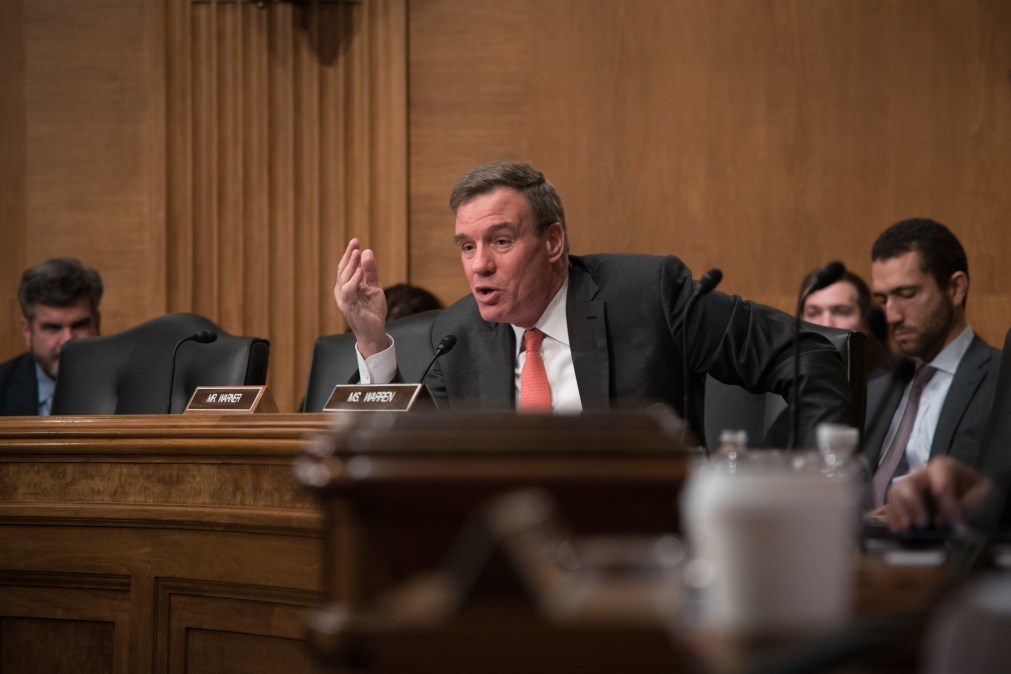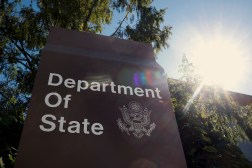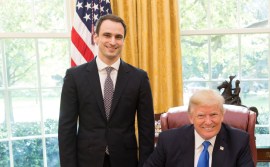Senators envision International Technology Partnership to oppose China’s dominance of emerging tech

A new interagency office inside the State Department would work to establish a technology partnership among democratic countries in opposition to China under a bill proposed by a bipartisan group of senators Thursday.
The Democracy Technology Partnership Act seeks an International Technology Partnership (ITP) for setting policies and standards, conducting joint research, and coordinating export controls and investment screening on 5G, artificial intelligence, quantum computing and other emerging technologies.
Dominance in these technologies will determine dominance in modern international politics, economics and warfare, and the U.S. wants to ensure authoritarian regimes, namely the Chinese Communist Party, don’t win out.
“In order to compete and counter the expansion of Chinese dominance in critical technology sectors, we need to create a strategy that leverages the power of American partnerships to protect and advance our technological edge,” Sen. Mark Warner, D-Va., who authored the bill along with Sen. Bob Menendez, D-N.J., said in the announcement. “This bipartisan legislation will help foster partnerships among the U.S. and like-minded democratic countries to better protect and compete against China in critical emerging technologies while helping set global rules, standards, and protocols for the market.”
The U.S. on its own, the senators say, simply can’t compete with Chinese tactics, which include: heavy subsidizing of its own companies, foreign incentives, pressure on international standards-setting bodies, unfair restrictions on foreign companies, and intellectual property theft.
Per their bill, the Technology Partnership Office would be led by a special ambassador for technology with deputies from the departments of Commerce and Treasury and representatives from key agencies. In addition to creating the ITP, the office would identify multilateral mechanisms for advancing the partnership’s objectives, coordinate with other countries on tech strategies and help find alternative tech for countries about to buy from authoritarian regimes.
Meanwhile the ITP will work on a private-sector led, politically neutral standards process; promote data privacy and sharing; ensure supply chain security; cooperate with academia; coordinate investments and co-financing in targeted countries; and raise awareness about authoritarian efforts to erode democracy using tech. Members must be democratic national governments that promote those values, have advanced tech sectors and want to work with the U.S. on defense and intelligence.
The bill would also create a $5 billion Technology Partnership Fund for joint research projects between international governments, universities and companies, as well as the targeted investments in third-country markets.
A Technology Partnership Advisory Board created by the legislation would consist of emerging technology and international trade experts, who would advise the State Department‘s new office. And the State Department would be required to report to Congress on the partnership’s focus areas, as well as a supplemental report on other countries’ standards and governance.
The bill’s sponsors include Sens. Chuck Schumer, D-N.Y.; Todd Young, R-Ind.; John Cornyn, R-Texas; Ben Sasse, R-Neb.; Marco Rubio, R-Fla.; and Michael Bennet, D-Colo.
“Too many nations fall prey to the trap of incentives associated with Chinese tech that only results in lost privacy, reduced autonomy, and greater dependence on Beijing,” Rubio said in a statement. “The U.S. must lead likeminded countries in establishing and supporting alternatives that are safer and technologically more advanced.”






